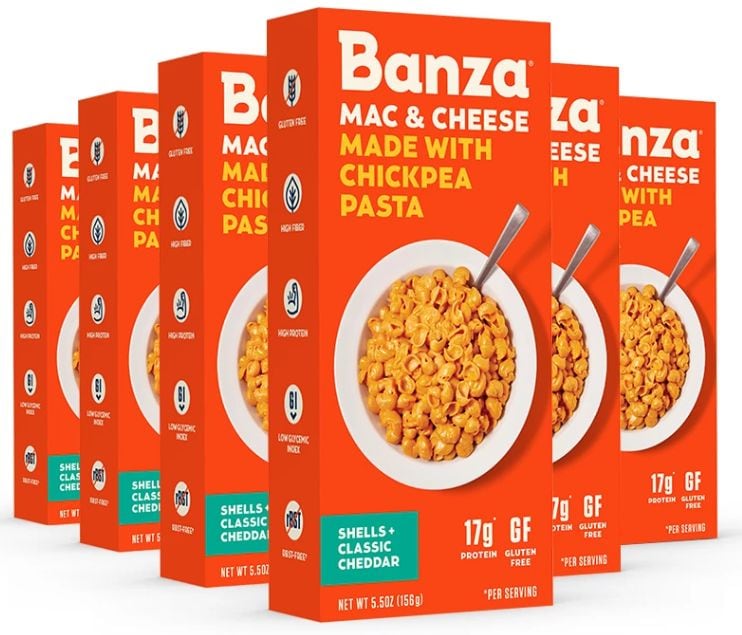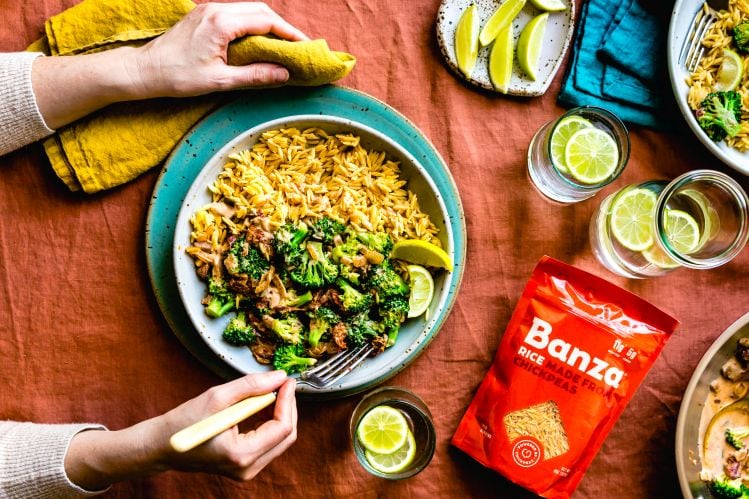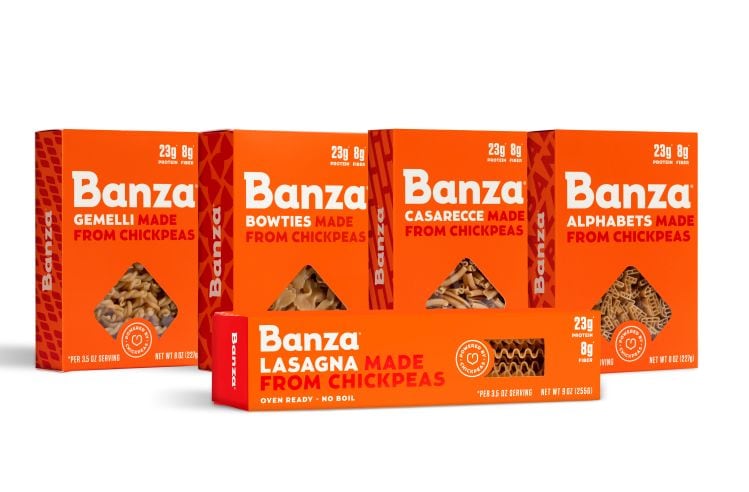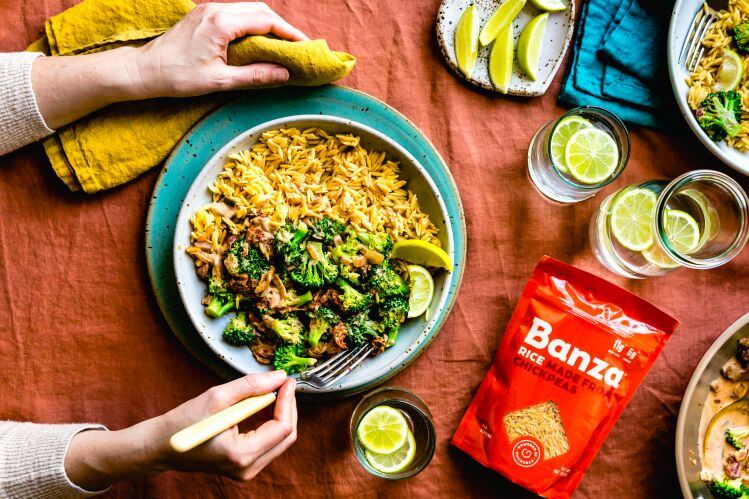Launched in late 2014 by brothers Brian and Scott Rudolph, Banza pasta is made from 90% chickpeas coupled with tapioca, pea protein and xanthan gum, and promises to rival the taste and texture of regular wheat pasta, with twice the protein and three times the fiber.
The brand - which raised $7.5m in a Series A round in 2017 led by Beechwood Capital – has also launched chickpea rice, packaged mac & cheese products, and lasagna sheets.
The new funding will help grow Banza’s sales team, support marketing efforts, and boost new product development, said Brian Rudolph, who is planning a move into the foodservice market in 2020.
‘Foodservice is an amazing opportunity for us’
The fastest-selling pasta brand in Whole Foods and Target, Banza is now available in 12,000+ retailer doors nationwide, but has not yet made major inroads into the foodservice market, he told FoodNavigator-USA.
“Foodservice is an amazing opportunity for us. We’ve actually been capacity constrained for the majority of our existence and we’ve always put our retail partners as the #1 priority when running short on product, so it was hard to even focus on a new channel.
“But we’ve all seen what Beyond Meat and Impossible Foods have accomplished in the foodservice market, and what’s exciting is what it’s done for their brand, not just sales.

“Long term we want to be wherever pasta is served, whether it’s in a hot bar, or on menu in a fast casual restaurant, the kids’ menu, or even fine dining.”
He added: “EHI [a growth equity fund affiliated with Union Square Hospitality Group, founded by Shake Snack founder Danny Meyer] with USHG has one of the most respected restaurant groups. And something we haven’t yet been able to focus on, but have really big ambitions in, is foodservice, so with their guidance we’re really excited about what we can accomplish in this space.
“They have also been really good about building team culture; Danny Meyers’ book, Setting the Table, has been very inspiring to me, and I’ve always looked up to him, so having him as a partner is personally very exciting.”
As for capacity constraints, things should change very soon as Banza – which manufactures its products on its own equipment at Virginia Park Foods in Riverside California - installs a new production line, he said.
“Last year we installed a line that increased capacity 10-fold on short shapes and this year we're installing a line that will do the same thing for long shapes.”
‘Any time our product is on end cap it has done wonders’
Unlike a lot of early stage food companies that have developed premium snacks and beverages targeting more affluent consumers, Banza makes ‘center of the plate’ products aimed squarely at mainstream consumers who are looking for more protein and fiber (fewer empty carbs), but won’t compromise on taste or texture, said Rudolph, who does not see Banza as a high-end natural foods or special diets brand.
However, brand awareness is still “extremely low,” he claimed. “People who know us, love us, but it’s still early days. What we’ve done so far on marketing has been fairly scrappy; we’ve really done well on Instagram, developing relationships with influencers; but there are other ways to reach folks.”
In store, end cap displays have been highly effective, he said. “Any time our product is on end cap it has done wonders; the bright orange captures people’s eye. And we’ve found time and time again if we do an end cap, then it’s impactful for the long run and we see a permanent increase in baseline sales.”

“At Enlightened Hospitality Investments, we invest in ideas we wish we’d thought of ourselves and companies run by people we wish we had hired ourselves. Our investment in Banza, a company that is successfully disrupting categories that consumers love but where they have been offered little in the way of innovation, is a perfect example of our strategy being put to work.”
Mark Leavitt, co-founder, managing partner, Enlightened Hospitality Investments.
“Prelude’s proprietary research indicates that Banza is resonating deeply with Millennials driven by its nutrition-rich and delicious product offering in a category which has seen very limited innovation. Banza also brings a sustainability lens to this space, which is increasingly an important factor in consumers’ purchasing decisions.”
Neda Daneshzadeh, co-founder, managing partner, Prelude Growth Partners
‘We’re very particular about how and when we choose to move into new spaces’
In the future, Banza “will continue to reimagine other mealtime comfort foods,” although it has always been very disciplined about the way it grows, said Rudolph, who is wary of “shiny object syndrome” and “very particular about how and when we choose to move into new spaces.
“Aside from developing new products we also continue to work to improve our core products, so with the rice, we’ll continue to make small tweaks, so for example we changed the shape, so the rice is intentionally less uniform-looking now, with several different sizes of grains. We made it less consistent on purpose," he said.
"We’re always looking for ways to make our products better. If you tried our pasta four years ago vs today you’d see a world of difference, and we've done sensory analysis to show we have a leading product in both taste and texture."
Constant existential fear...
Asked what keeps him awake at night at this stage of the business compared with the early days, he said:
"In the beginning you don't even know if you'll be around in a year or two, so there's this constant existential fear; whereas at the stage we're at now, it's more that if you make a mistake, it becomes amplified, because you're bigger, so you have to watch every little detail."



